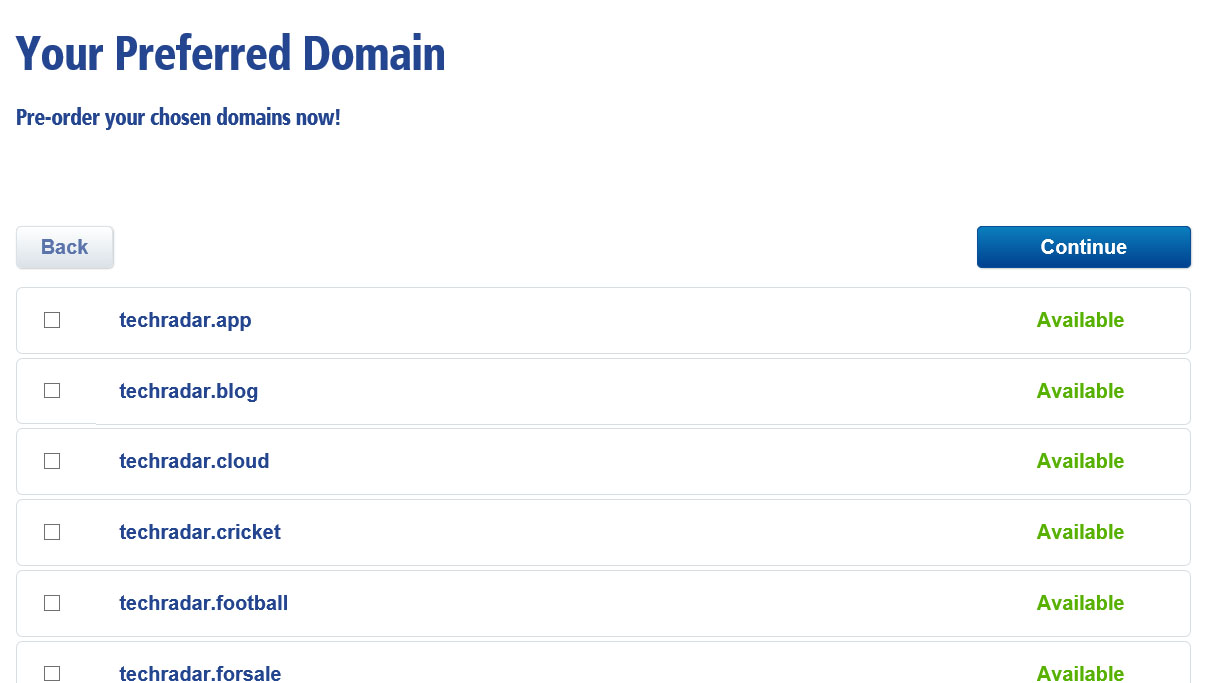New top-level domains now available - but some aren't without controversy
.online, .web, .ltd, .website, and .blog just some of the suffixes available

Does you or your business have a great domain name? If not, you're about to get another chance to name your online home, with the introduction of hundreds of new top level domains (TLDs for short).
If you couldn't get the .com or the .co.uk domain for your company name, how about . online, .web, .ltd, .website, .blog or .site?
We already have nearly 300 country domains (like .uk for the UK or .de for Germany) and more than 30 generic TLDs like the familiar .com.
But a few years ago ICANN, the organisation that makes key decisions about how the Internet work, decided that we need more domain names, especially for brands and for businesses.
That's partly a response to the way country-specific domains like .tv and .it get used for sites that are nothing to do with Tuvalu or Italy; something that Google says could make your website show up further down its search results.
ICANN said in June it had already evaluated nearly 2,000 new TLDs; 121 were dropped as unsuitable, 22 are getting more in-depth checks and 1,745 are now either ready to be sold or in the last stages of making sure they work properly everywhere in the world.
That means if you're based in Wales or you're a law firm, it's time to think about reserving domain names in the new top-level domains that tell your visitors – and search engines – a bit more about your business, according to Robert Hoffman, CEO of web hoster and domain registrar 1&1. "The landscape will change, because the domain will tell you more about a business than it does today."
Are you a pro? Subscribe to our newsletter
Sign up to the TechRadar Pro newsletter to get all the top news, opinion, features and guidance your business needs to succeed!
That's on top of the chance to get a catchy domain name instead of the longer name you may have had to settle for in the past. Hoffman compares it to the switch from IPv4 to IPv6 to get more IP addresses. "The existing domains are so limited that Joe the Plumber doesn't have the opportunity to get an appropriate domain name. I think it will also increase the relevance of search results."
Very few people type in domain names directly in their browser; instead they search or follow links. Search engines can use the fact you have a .london TLD to include your site when someone searches for your kind of business in London.
Will Google make the new domains easy to find?
Some of the new TLDs are controversial. Google wants to control the .search TLD, as well as .app, .blog and .cloud; that's caused an outcry from competitors who aren't convinced Google will be fair and unbiased when deciding whether a someone who wants a .app domain is part of a "relevant developer community".
Hoffman agrees with the concerns; "It's fine if .Paris is only available if your business is there, but .search shouldn't only be available if you have a Google account." 1&1 is bidding to run the .web domain and Hoffman says it wouldn't ever tie domain names to hosting with them. "This is a great opportunity for our customers but it's important to keep the business models separate, so you can have a domain registered with one company and choose to have your hosting elsewhere."
Other companies have also applied to run .search, and Google has already had to change its plans. It wanted .search to work as a 'dotless domain', where you can just type 'search' into your browser. ICANN said that would be confusing and could break some applications and Internet standards and it banned dotless domains.
There's a similar problem with the proposed .home domain; lots of companies use HOME as the internal domain for connecting to a server or the company intranet. Having it go to somebody's web site could cause a lot of confusion.
These problems are why the new TLD process is taking some time, but now that ICANN is signing contracts with registrars they will be able to put prices on new domains. Stuck for ideas? 1&1 has a search system where you can type in keywords about your business, get suggestions for appropriate top-level domains and reserve them.
Bear in mind that some domains are restricted - .bank and .law are reserved for banks and lawyers – and that you might have to go through the Trademark Clearing House to make sure you're not infringing another business's trademark.
If there is a TLD and a domain you have your eye on, reserve it with a registrar soon because the first new TLDs will be working by the end of the year.
- Now why not check out Social media for business: what can it do for you?
Mary (Twitter, Google+, website) started her career at Future Publishing, saw the AOL meltdown first hand the first time around when she ran the AOL UK computing channel, and she's been a freelance tech writer for over a decade. She's used every version of Windows and Office released, and every smartphone too, but she's still looking for the perfect tablet. Yes, she really does have USB earrings.